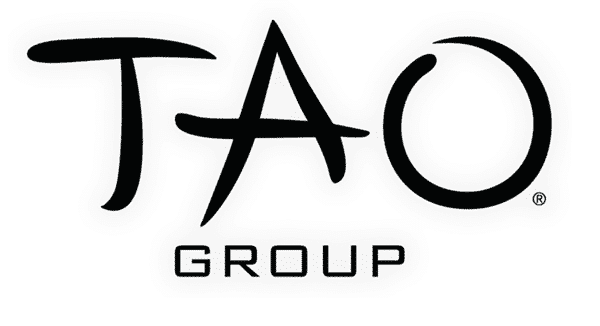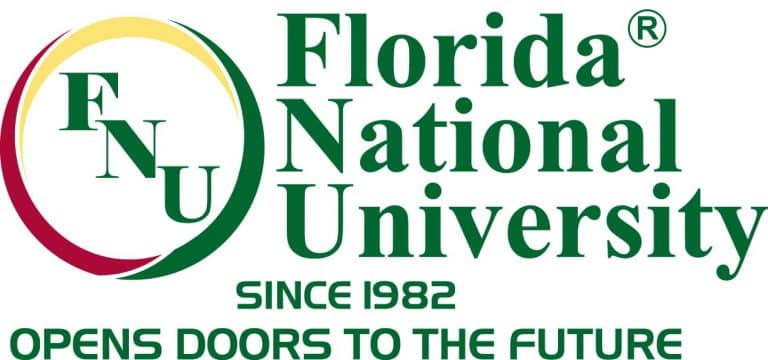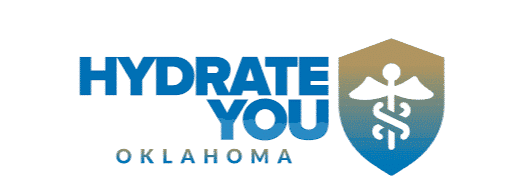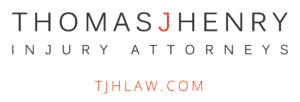
Introduction
In the world of search engine optimization (SEO), few concepts have garnered as much attention as Google’s E-A-T guidelines. E-A-T, which stands for Expertise, Authoritativeness, and Trustworthiness, has become a crucial factor in determining the quality and ranking of websites on Google’s search results.
Introduced in Google’s Search Quality Evaluator Guidelines, E-A-T is not a direct ranking factor but is deeply intertwined with how Google’s algorithms evaluate content. With the ever-evolving landscape of SEO, understanding and implementing E-A-T principles is essential for anyone looking to succeed online. This comprehensive guide will delve into what E-A-T is, why it matters, and how you can optimize your website to meet these guidelines.
1. What is E-A-T?

1.1 The Origins of E-A-T
E-A-T is a concept derived from Google’s Search Quality Evaluator Guidelines, a document used by human evaluators to assess the quality of search results. While these guidelines don’t directly influence rankings, they provide insights into how Google wants its algorithms to interpret and rank content.
E-A-T was introduced to combat the spread of misinformation and low-quality content, particularly in sensitive areas like health, finance, and safety. It is part of Google’s broader mission to ensure that users receive accurate, reliable, and trustworthy information when they search online.
1.2 Breaking Down E-A-T
Expertise: This refers to the skill and knowledge of the content creator. Google values content produced by subject matter experts, especially for topics that require a high level of accuracy, such as medical advice, legal information, or financial guidance.
Authoritativeness: Authoritativeness relates to the credibility of the website or content creator within their industry or field. Google looks at signals like backlinks from reputable sites, mentions in authoritative publications, and the overall reputation of the author and website.
Trustworthiness: Trustworthiness focuses on the reliability and safety of the website. This includes factors such as a secure website (HTTPS), transparent business practices, accurate content, and positive user reviews.
2. Why E-A-T Matters for SEO

2.1 The Role of E-A-T in Google’s Algorithm
Although E-A-T is not a direct ranking factor, it plays a significant role in how Google evaluates and ranks content. Google’s algorithms use E-A-T as a framework to assess the quality of a website and its content. Websites that demonstrate high levels of expertise, authoritativeness, and trustworthiness are more likely to rank higher in search results.
For instance, Google’s algorithms are designed to favor content that is likely to be accurate, reliable, and helpful to users. This is particularly important for “Your Money or Your Life” (YMYL) pages, which include content related to health, finance, and safety. Poor E-A-T on YMYL pages can result in lower rankings, as Google aims to protect users from potentially harmful or misleading information.
2.2 The Impact of E-A-T on Content Quality
E-A-T is closely tied to content quality. High-quality content is not only accurate and informative but also comes from credible sources. By focusing on E-A-T, content creators can improve the quality of their work, which in turn can lead to better rankings and more organic traffic.
Moreover, E-A-T influences user trust. When users perceive a website as trustworthy and authoritative, they are more likely to engage with the content, share it, and return to the site in the future. This can lead to increased brand loyalty and a stronger online presence.
3. How to Improve Your Website’s E-A-T
3.1 Building Expertise

3.1.1 Create High-Quality, In-Depth Content
To establish expertise, it’s essential to create content that is not only accurate but also in-depth and comprehensive. This means going beyond the basics and providing detailed, well-researched information that addresses the needs and questions of your audience.
For example, if you run a health blog, your content should be based on scientific research, written by medical professionals, and regularly updated to reflect the latest findings.
3.1.2 Showcase Author Credentials
Another way to demonstrate expertise is by highlighting the credentials of your content creators. This can include academic degrees, professional certifications, and years of experience in the field. Including author bios with relevant qualifications and experience can help build trust with both users and search engines.
3.1.3 Use Expert Contributors
If you don’t have in-house experts, consider collaborating with industry professionals or guest contributors who can provide authoritative insights. This not only enhances the quality of your content but also boosts your site’s credibility.
3.2 Enhancing Authoritativeness

3.2.1 Earn High-Quality Backlinks
Backlinks from reputable websites are a key signal of authoritativeness. To earn high-quality backlinks, focus on creating valuable content that other websites in your industry will want to link to. This could include original research, in-depth guides, or expert opinions.
Guest posting on authoritative sites in your niche can also help build your backlink profile and increase your site’s visibility and authority.
3.2.2 Gain Mentions from Reputable Sources
Mentions from well-known publications, industry blogs, or news outlets can significantly enhance your site’s authoritativeness. PR efforts, such as press releases, interviews, and media appearances, can help you gain visibility and recognition in your industry.
3.2.3 Build a Strong Brand Reputation
A strong brand reputation is a crucial aspect of authoritativeness. This involves maintaining a consistent online presence, engaging with your audience on social media, and addressing any negative feedback or reviews promptly and professionally.
3.3 Establishing Trustworthiness

3.3.1 Ensure Website Security
Website security is a fundamental aspect of trustworthiness. Make sure your website uses HTTPS, which encrypts data between the user’s browser and your server. This not only protects your users’ information but also signals to Google that your site is secure.
3.3.2 Provide Accurate and Transparent Information
Trustworthiness is also about transparency. Make sure your content is accurate, fact-checked, and free from misleading information. For e-commerce sites, this includes providing clear product descriptions, pricing information, and return policies.
3.3.3 Display Customer Reviews and Testimonials
Customer reviews and testimonials can significantly enhance your site’s trustworthiness. Encourage satisfied customers to leave reviews on your site or on third-party platforms like Google My Business, Yelp, or Trustpilot. Positive reviews signal to both users and search engines that your business is reliable and trustworthy.
3.3.4 Maintain a Professional Website Design
A professional and user-friendly website design also contributes to trustworthiness. Ensure your site is easy to navigate, visually appealing, and free from errors or broken links. A poorly designed website can undermine user trust and negatively impact your rankings.
4. Common E-A-T Challenges and How to Overcome Them
4.1 Dealing with Low E-A-T Scores

If your site has a low E-A-T score, it’s essential to identify and address the underlying issues. Start by reviewing your content to ensure it meets Google’s quality standards. If your site covers YMYL topics, consider hiring experts to create or review your content to improve its credibility.
Additionally, conduct a thorough audit of your backlink profile. Disavow any low-quality or spammy backlinks that could be harming your site’s authoritativeness. Focus on building relationships with reputable sites in your industry to earn high-quality backlinks.
4.2 Addressing Negative Reviews and Online Reputation

Negative reviews can impact your site’s trustworthiness and overall E-A-T score. To address this, respond to negative reviews professionally and offer solutions to the issues raised. Demonstrating a commitment to customer satisfaction can help mitigate the impact of negative feedback.
It’s also important to proactively manage your online reputation. Monitor mentions of your brand across the web and address any misinformation or negative publicity quickly.
4.3 Ensuring Content Accuracy and Updates

For sites covering rapidly changing topics like health, finance, or technology, keeping content up-to-date is critical. Regularly review and update your content to ensure it reflects the latest information and best practices. This not only improves your site’s E-A-T but also enhances its relevance and usefulness to users.
5. Case Studies: E-A-T in Action

5.1 The Health Industry
The health industry is one of the most impacted by E-A-T, given the importance of providing accurate and trustworthy information. Websites like WebMD and Mayo Clinic rank highly in Google search results due to their strong E-A-T profiles. These sites feature content written and reviewed by medical professionals, ensuring a high level of expertise.
In contrast, sites with poor E-A-T in the health sector have seen significant drops in rankings following Google’s core updates. For example, sites offering alternative health treatments without scientific backing have struggled to maintain visibility.
5.2 The Financial Sector
The financial sector is another area where E-A-T is crucial. Users rely on financial websites for advice on investments, loans, and other critical decisions. Sites like Investopedia and NerdWallet have built strong E-A-T profiles by providing well-researched, accurate content created by financial experts.
On the other hand, sites offering get-rich-quick schemes or unverified financial advice are often penalized in search rankings due to low E-A-T.
5.3 E-Commerce and Product Reviews
E-commerce sites and product review websites also need to prioritize E-A-T. Consumers rely on these sites to make purchasing decisions, so trustworthiness is paramount. Amazon, for example, has a strong E-A-T profile due to its robust review system, clear product information, and secure payment processes.
Sites with fake reviews, unclear return policies, or insecure payment gateways are likely to suffer in search rankings due to poor trustworthiness.
6. Future Trends in E-A-T
6.1 The Increasing Importance of E-A-T

As misinformation continues to be a major concern online, the importance of E-A-T is only expected to grow. Google is likely to place even greater emphasis on E-A-T in future algorithm updates, particularly for YMYL topics.
This means that content creators and website owners must continue to focus on building expertise, authoritativeness, and trustworthiness if they want to succeed in the long term.
6.2 The Role of AI and Machine Learning in E-A-T

AI and machine learning are playing an increasingly important role in how Google evaluates E-A-T. These technologies enable Google to better understand the context and quality of content, as well as the credibility of sources.
For example, Google’s BERT and MUM models help the search engine understand the intent behind queries and the relevance of content, further refining how E-A-T is applied in search rankings.
6.3 User-Centric E-A-T

As Google continues to prioritize user experience, E-A-T will likely become more user-centric. This means that user feedback, engagement metrics, and on-site behavior may play a larger role in how E-A-T is assessed. Websites that focus on delivering a positive user experience, in addition to high-quality content, will be better positioned to succeed.
7. Conclusion: Mastering E-A-T for SEO Success

Understanding and implementing Google’s E-A-T guidelines is essential for anyone looking to achieve long-term success in SEO. While E-A-T is not a direct ranking factor, it plays a critical role in how Google evaluates content quality and ranks websites.
By focusing on building expertise, authoritativeness, and trustworthiness, you can improve your site’s credibility, enhance user trust, and ultimately achieve better search rankings. Whether you’re in the health, financial, or e-commerce sector, prioritizing E-A-T is key to staying competitive in today’s digital landscape.
As Google continues to refine its algorithms and place greater emphasis on E-A-T, staying informed and proactive will be crucial. By following the strategies outlined in this guide, you can ensure that your website meets Google’s E-A-T standards and remains a trusted resource for your audience.






















